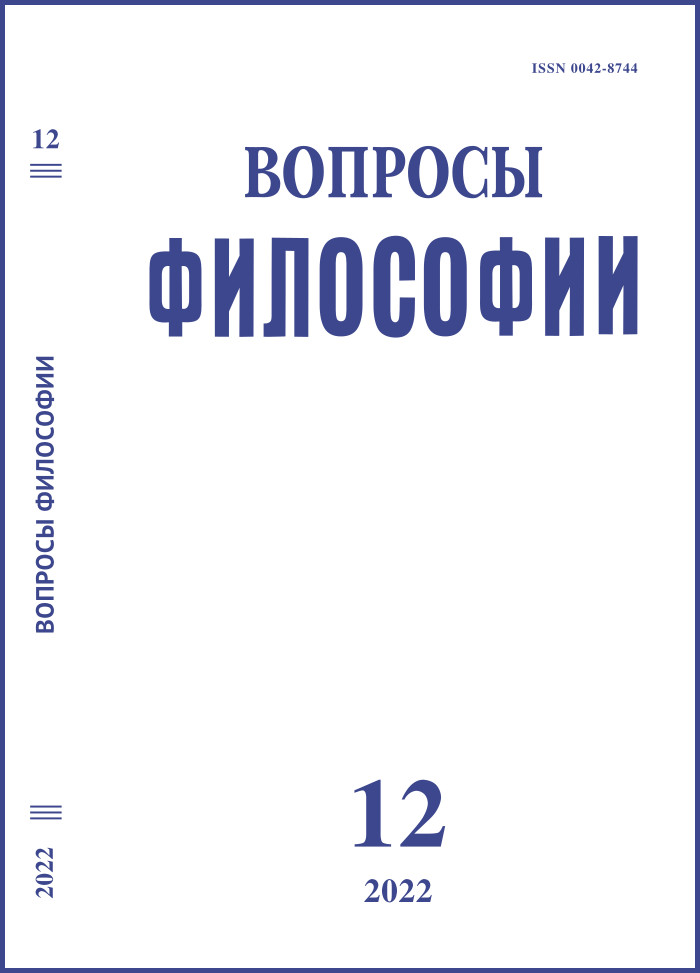Madhyamaka and Advaita Vedānta on the Ontology of Time
DOI:
https://doi.org/10.21146/0042-8744-2022-12-168-179Keywords:
religious and philosophical systems of ancient and early medieval India, Buddhism, Mahāyāna, Madhyamaka, Advaita Vedānta, Nāgārjuna, Candrakīrti, Śaṃkara, the concept of time.Abstract
Fundamental difference between Buddhist Mahāyāna school of Madhyamaka and Brāhmaṇic school of Advaita Vedānta in interpretation of ontology of time is analyzed on the basis of Nāgārjuna’s (2–3rd cc.) treatise Mūla-madhyamaka-kārikā, Candrakīrti’s (7th c.) commentary Prasannapadā, Vasubandhu’s (4th c.) treatise Abhidharmakośa, Asaṅga’s (4th c.) Abhidharma-samuccaya, Śaṃkara’s (9th c.) commentary to Bādarāyaṇa’s (2nd c.) Brahma- sūtras and Sadānanda’s (15th c.) Vedāntasāra. Time according to Madhyamaka is the result of the activity of consciousness blinded by afflictions (kleśa), and therefore it is just mental construction having no referent in reality. There is no time in true reality, for time presupposes the difference between past, present and future. But, according to Mahāyāna, any difference is engendered by afflictions and the true reality is free from them. Differences, including the difference between past, present and future, exist only in a saṃsāric consciousness. In other words, time for Mahāyāna is nothing more than an epistemological phenomenon. Time in Advaita Vedānta has a positive ontological status. The only true reality is Brahman, and the empirical world is subject to changes and therefore cannot be considered as perfectly real. But if it were perfectly unreal it could not conceal Brahman and manifest itself in individual consciousness as ignorance. Therefore time as one of its aspects is only relatively real and exists not only in individual consciousness but also outside of it as a part of māyā, the creative power of Brahman. The overcoming of ignorance is the penetration to truly real Brahman through changing and temporary world that conceals it.
Downloads
Published
Versions
- 2025-02-07 (2)
- 2022-12-31 (1)

